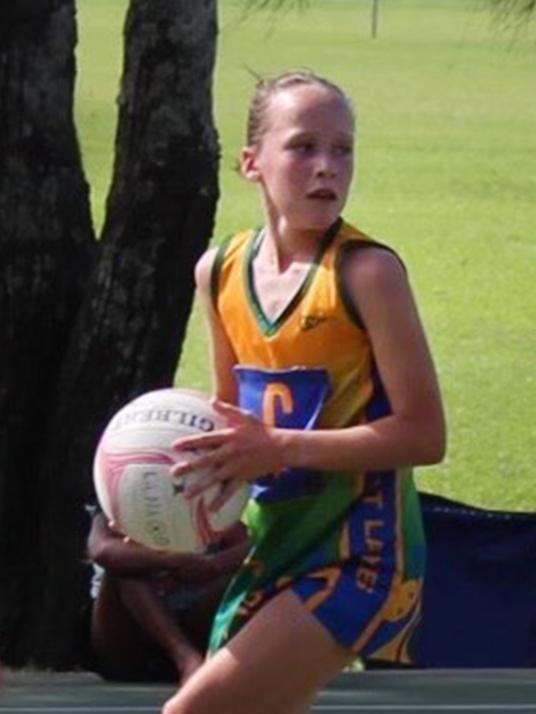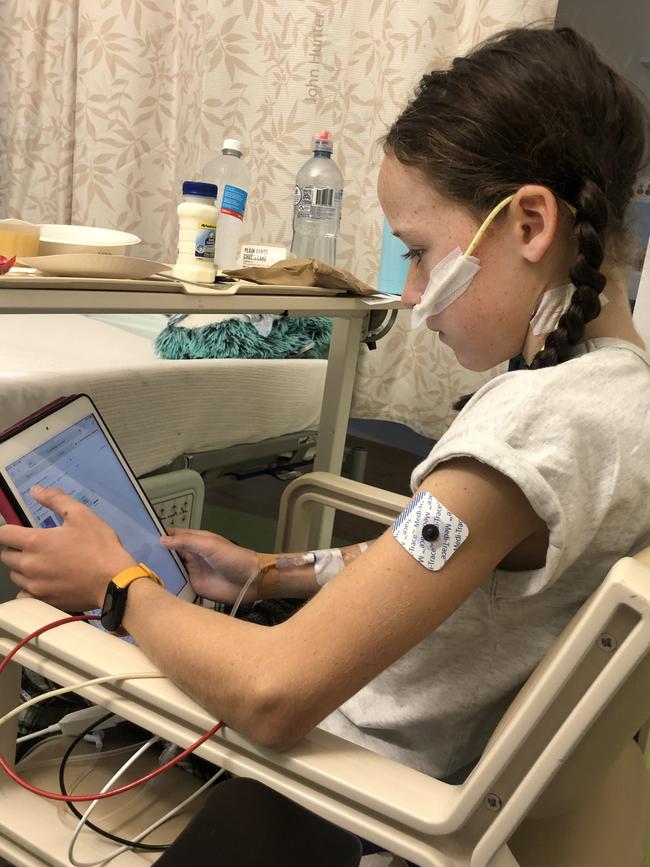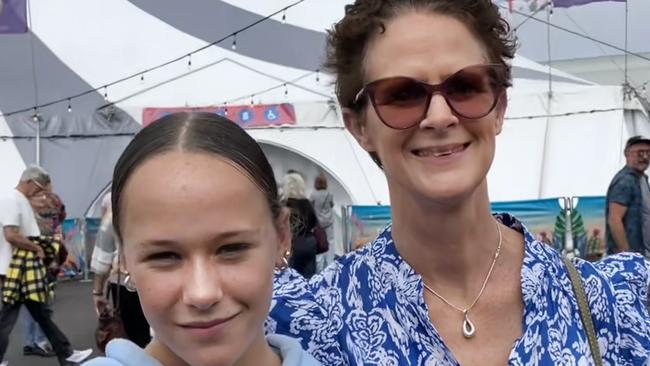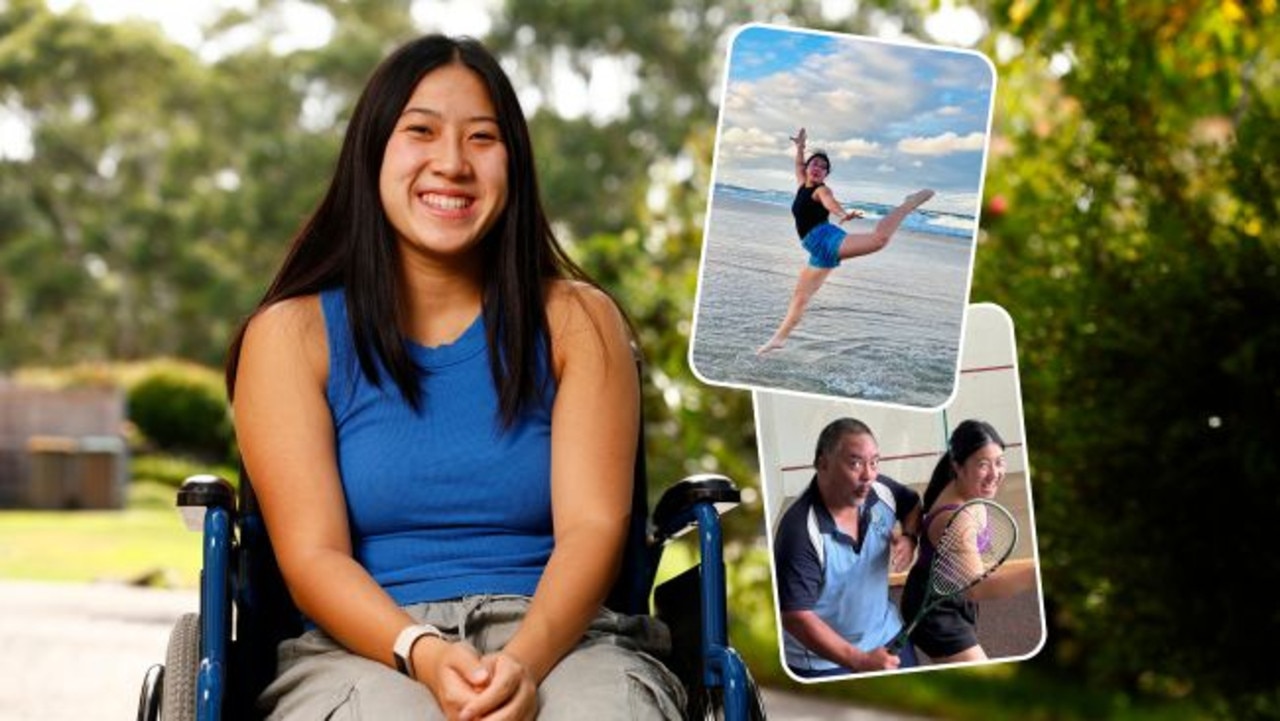Mum Ingrid Martin reveals the warning signs before her daughter Abby was diagnosed with an eating disorder
When 11-year-old Abby started skipping and obsessively exercising, her mum couldn’t ignore the warning signs. See the check list.

Parenting
Don't miss out on the headlines from Parenting. Followed categories will be added to My News.
Ingrid Martin was terrified when her smart, sporty 11-year-old daughter started skipping meals and secretly exercising in the early-morning hours while the family slept.
“I never anticipated that anorexia would affect one so young,” said the mum of two.
“It blew my mind that you can get even younger kids who have body image dysmorphia or body-image problems. It’s just so heartbreaking to think how little these kids are and they are going through torment and it’s awful.”
By the time Ms Martin finally found medical help for Abby – after repeated trips to their GP and the local hospital – her weight had plummeted to 32kg and her health had already reached a crisis point.


The Year 6 student, who was obsessing over self-imposed exercise challenges, racking up nearly 80,000 steps in a day and making excuses not to eat, was eventually given a referral to an eating disorder clinic near her family’s home on the NSW north coast. But before she even arrived for her appointment, Ms Martin was told to rush her to hospital.
Blood tests had revealed that Abby had suffered liver damage and her heart was under stress – life-threatening symptoms of anorexia nervosa. Her heart rate had dropped to just 29 beats a minute.
“We drove to John Hunter Hospital (in Newcastle), which was two hours away. Abby got admitted within 10 minutes and she stayed there for four weeks,” Ms Martin said.
“She was fed by a nasal-gastric tube and she was only allowed limited movement. At about 3am one morning, her respiratory rate and heart rate were so low, the crisis response team came in. She was very, very unwell.
“It was incredibly scary.”

Ms Martin, a vet, took time off work to help Abby recover, supervise her daily meals and snacks and take her to weekly dietitian and psychologist appointments in Newcastle.
Two years later, Ms Martin said 13-year-old Abby had gained 50 per cent of her body weight and was “doing really well … we’re really, really lucky”.
Her daughter’s experience – which included cooking fancy desserts but never eating them and restricting foods such as carbohydrates – has contributed to a study by Flinders University.
The research has created a checklist of 10 early-warning signs for eating disorders that GPs and parents can use for children as young as five.
“The reality is that if any parent is taking their child to the GP in concern about eating disorders, something’s wrong. Because if they’ve noticed it, things are happening,” Ms Martin said.
“That’s why this research is so important. If there’s a validated test that GPs and parents can go to that they know is reliable, that’s huge because the earlier you catch it, the quicker things can turn around.”
Study leader Dr Jamie-Lee Pennesi said eating disorders in children aged five to 11 were increasing at a “drastic rate”.
The eating disorder expert said the research was targeting ways to end delays in diagnosis and intervention, which could “make a difference between life and death”.

The warning signs include excessive exercise, cutting out major food groups such as dairy, becoming obsessed with preparing food and changes in bathroom habits.
“If these behaviours aren’t addressed, they can quickly develop into a serious and life-threatening eating disorder,” said Dr Pennesi.
Nearly one in three Australian adolescents become affected by disordered eating in any given year.
More Coverage
Originally published as Mum Ingrid Martin reveals the warning signs before her daughter Abby was diagnosed with an eating disorder





